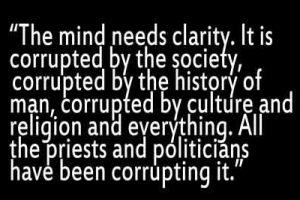 As I am working to strengthen the integrity of my site (slow going and a lot of mundane work) I re-read some of my earlier articles, and I am amazed how good they are.
As I am working to strengthen the integrity of my site (slow going and a lot of mundane work) I re-read some of my earlier articles, and I am amazed how good they are.
I wish I could just take a metaphorical funnel and pour them all in your brain… But…
You probably would not be able to use any of it.
Anything you don’t earn, or you don’t feel your earned will be rejected by your higher self…
At some period in my life I wrote articles about strippers and strip clubs, and was stupefied by the strippers’ behavior. They earned their money in a way that their higher self did not condone, so they had to get rid of all their money, and fast.
Some, where this inner conflict didn’t exist, invested their money and became rich.
Life, money, success, failure is how you look at it.
This is what this article is about…
I work with my trainer at the gym every week lifting weights, pulling cables and moving my body under stressful conditions. The goal is to tone muscle, reduce fat, increase flexibility and generally make my body healthier. At a session, not too long ago, I was working on my third set of repetitions when I just could not move that barbell another inch. I was done. I looked at him, with futility rays beaming from my eyeballs and his response was a surprising, “You did great! You failed!” Failure, as he went on to define it, is that place where my muscles can no longer perform and that ideally one works to failure to breakdown fibers so that they grow back stronger and better. Failure is optimal. The idea and feeling of failure didn’t make me feel very good, but it did make me think. I realized that much of my behavior is judged against my definitions of failure and success, which has a great effect on how I feel about myself. What would happen if I could view my life from the vantage point of seeing failure as that moment when I meet my limits instead of when the world comes crashing down?
As part of financial life planning, I am constantly talking with clients about their definitions. What exactly constitutes success and failure? Professor Meir Statman, tells a great story about two men walking in the jungle, each bragging about their great speed and running ability. They suddenly stumble across a hungry looking tiger. The question is not which man is faster than the other; the question is which man is faster than the tiger! Before being faced with a metaphorical tiger, we are apt to define success and failure by comparing ourselves with others. For some, failure can be defined as the inability to purchase a vacation home in the Berkshires. But do these kinds of comparisons really serve us?
To some, success means not outliving their assets; to others, success means leaving sizable wealth to their children. Some define success as being able to make substantial donations to charity while they are alive; others feel that success means the ability to live within their means. Who is right? Is there a right and wrong at all?
Several years ago, I met with a couple who had accumulated substantial wealth far in excess of their expectations. During our discussions regarding their retirement, they told me that their greatest wish was to devote the first part of their retirement as docents in National Parks, living in tents and cabins, giving tours to visitors. They had obviously invested a great deal of time thinking and discussing these plans and I was riveted by their vivid descriptions. Beyond their simple needs, they went on to explain, they wanted only to live a modest life, provide some funds to support their grandchildren’s education and leave the rest to charity.
Their plan covered the three stages of retirement and provided for contingencies. They had discussed their thinking with their three children, who were supportive of their wishes. They had selected the charities and organizations they wished to benefit and had prepared the appropriate documents with their Estate attorney. All in all, it was a text book study of well considered planning and of a family who was exceedingly grateful for their successes. Even thought they had money, their success was not defined by purchasing extravagant items. Indeed, that kind of behavior would have been a kind of failure for them- a failure to live true to their dreams and needs.
Not all families are so well organized, thoughtful or at ease with their planning or their definition of success and failure. Last year, I met with a couple that was also quite comfortable financially. When our discussion moved into the retirement phase of life, a topic that would normally open a floodgate of conversation, they responded with total silence. Not only had they not talked about it with each other, they did not want to talk about it with me. When I pushed the husband to describe how he envisioned his retirement years, he answered sullenly, “Boring, dull, torture!”
article continues after advertisement
I accepted this answer in my most neutral tone, “Tell me more. Why do you feel that way?” He thought for a while before responding. “I never think about retirement. I have no hobbies or interests. I don’t even know where to begin! Friends’ of ours owns multiple properties and that seems to make them happy. I just don’t know. I can’t see myself owning two homes; I don’t feel comfortable spending that amount of money. Our friends have a lot more than we do.”
I could see the pain on both their faces- a pain that is most familiar to me. There is nothing like the look of someone who believes they have failed. What’s incredible is how successful these “failures” really were. In having this conversation, though, these clients had taken the first of many steps on the road to redefining their definition of success and failure, a critical shift that would enable them to look to the future with enthusiasm, rather than dread.
Very often when we see people who appear to have achieved great status and wealth, we automatically believe that they are happy, successful and enjoying the bounty of life. Meanwhile when we see others living more modestly, we may not immediately recognize the immense success they have achieved. Many years ago, I was attending a high school graduation ceremony with other members of the School Board. When one child’s name was called, a whole group of people in the arena audience started yelling, shouting, cheering and setting off air horns and noise makers. What a ruckus, certainly not in keeping with the otherwise staid ceremony. The newest board member (attending his first graduation) made a face in disgust at the obvious departure from proper decorum. In answer, the Superintendent leaned over and told him that this young person was the first member of that entire family to ever graduate high school! He certainly got his definition of success rearranged.
Bottom line: it’s all a matter of perspective. My arms and shoulders ache today and I am basking in the warm glow of failure!
 Another article I wrote back in April, becoming successful as a human talks about the same thing from the vantage point of evolution, personal or the evolution of a species…
Another article I wrote back in April, becoming successful as a human talks about the same thing from the vantage point of evolution, personal or the evolution of a species…
It seems to me that your soul correction is the most important determinant in how you view success or failure.
Some soul corrections, the people with the biggest egos, want success without any failure… and of course that is not how it works, so they won’t succeed.
Everyone talks about fear of failure, but some people literally refuse to fail and therefore can’t succeed.
You don’t learn anything from success.
Surprisingly my clients who had a lot of successes have a harder time to create a life that they are willing to do, even though some of it is boring.
Success is titillating, and addictive… and leads to pleasure seeking behavior, and avoidance of work that requires grit.
I am thinking of asking people to write up their failures, where, in spite of the actions they took, the project didn’t turn out. and I am thinking of encouraging people to shoot for failing quickly and learn from it. And then do it again.
The fastest learning possible, if you have the right mindset.
I have plenty of failed projects, and my biggest learnings came from them.
Success is overrated…
Osho said: the biggest failure is success… of course this is from his vantage point.
Life knows no planning. It is itself enough. Do the trees plan how to grow, how to mature, how to come to flower? They simply grow without even being conscious of the growth. There is no self-consciousness, there is no separation.
 Whenever you start planning you have divided yourself, you have become two – the one who is controlling and the one who is controlled. A conflict has arisen, now you will never be at peace. You may succeed in controlling but there will be no peace, or you may not succeed in controlling, then too there will be no peace. Whether you succeed or fail, ultimately you will come to realize that you have failed. Your failure will be a failure, your success will also be a failure. Whatsoever you do, your life will be miserable.
Whenever you start planning you have divided yourself, you have become two – the one who is controlling and the one who is controlled. A conflict has arisen, now you will never be at peace. You may succeed in controlling but there will be no peace, or you may not succeed in controlling, then too there will be no peace. Whether you succeed or fail, ultimately you will come to realize that you have failed. Your failure will be a failure, your success will also be a failure. Whatsoever you do, your life will be miserable.
This division creates ugliness, you are not one, and beauty belongs to oneness, beauty belongs to a harmonious whole. All culture, all civilization, all societies, make you ugly. All morality makes you ugly because it is based on division, on control.
Once the Baal Shem Tov (a sage rabbi) was traveling in a beautiful coach with three horses. But he was wondering continuously. For three days he had been traveling, but not even once had any of the horses neighed. What had happened to the horses? Then suddenly on the fourth day, a passing peasant shouted at him to relax control. He relaxed, and suddenly all three horses started neighing, they came alive. For three days continuously they had been dead, dying.
 But he who desired success has already accepted failure. Within, he has become afraid of failure. Because of failure he desires success. And whenever he wishes for success, the idea of failure comes; the idea of failure goes on becoming stronger. Sometimes he succeeds, but he is certain to spend his journey through life in failure after failure. The mood of failure goes on deepening. It deepens so much that one day it manifests. Then you complain that you wanted success. But in wanting success, you have wished for failure.
But he who desired success has already accepted failure. Within, he has become afraid of failure. Because of failure he desires success. And whenever he wishes for success, the idea of failure comes; the idea of failure goes on becoming stronger. Sometimes he succeeds, but he is certain to spend his journey through life in failure after failure. The mood of failure goes on deepening. It deepens so much that one day it manifests. Then you complain that you wanted success. But in wanting success, you have wished for failure.
Lao Tzu has said, “Wish for success and you will fail. If you really want success, never wish for it. Then no one can make you a failure.”
You say you wanted respect, but you are getting insults. A person who wants respect has no respect for himself, yet he wants respect from others. He who has no respect for himself wants others to cover it, to hide his lack of respect. This desire for respect is the sign that you feel disrespect for yourself within. You have the feeling that you are nothing. Others should make you into something, should put you on a throne, should raise banners for you, should hoist flags in your name – others should do something! You are a beggar. You have already insulted yourself when you wanted respect. And this insult goes on deepening.
 Lao Tzu says, “No one can insult me because I don’t want respect.” This is attaining true respect.
Lao Tzu says, “No one can insult me because I don’t want respect.” This is attaining true respect.
Lao Tzu says, “No one can defeat me because I have dropped the very idea of winning. How can you defeat me? You can only defeat one who wants to win.” It is a strange fact.
Osho doesn’t say this, at least not in this talk, that wanting love, wanting appreciation, wanting significance, wanting to be right, wanting to look good are all the same as what Lao Tzu says about respect…
Only when you can do life without those desires and demands is when you can get it, and when you can get a life worth living.
 Wanting anything from the horizontal plane carries with itself, on the seed level, the opposite, and you remember what the seed does: it grows into a tree. You plant an apple seed you get an apple tree. You plant “I want love because I don’t love myself” seed… you get more of it.
Wanting anything from the horizontal plane carries with itself, on the seed level, the opposite, and you remember what the seed does: it grows into a tree. You plant an apple seed you get an apple tree. You plant “I want love because I don’t love myself” seed… you get more of it.
Guaranteed.
I often think about Marilyn Monroe, because she was generous enough to live her life publicly. She wanted all those things, and got depression for it.
Because that is how it works.
